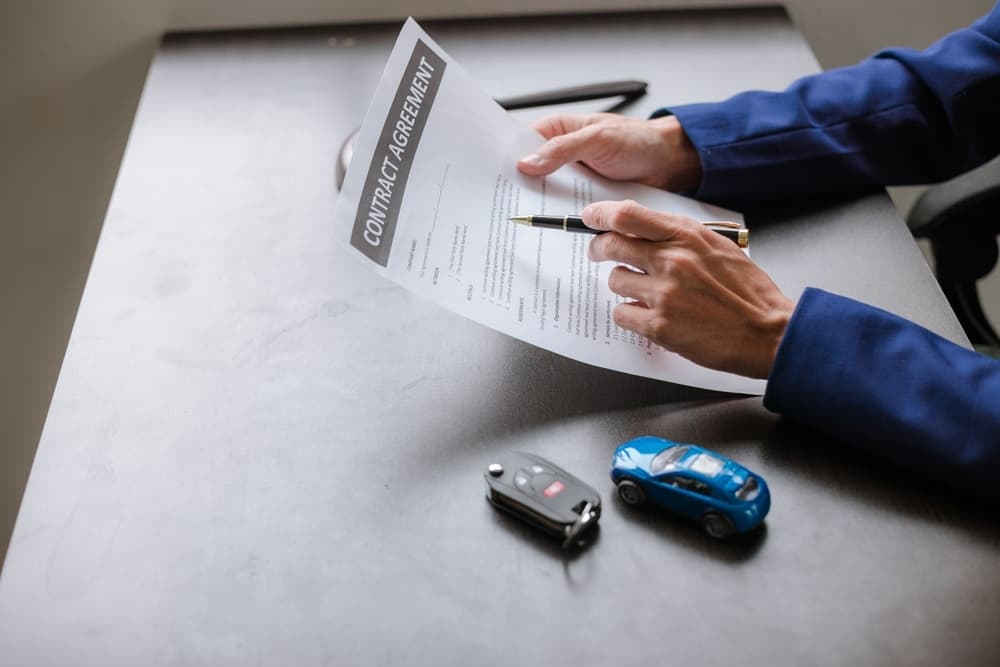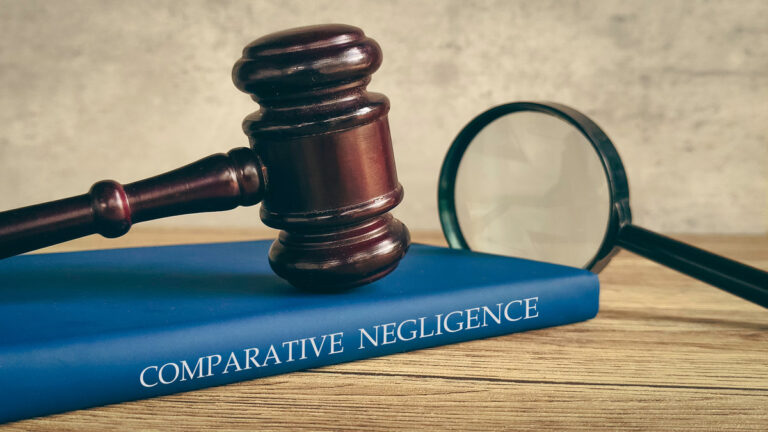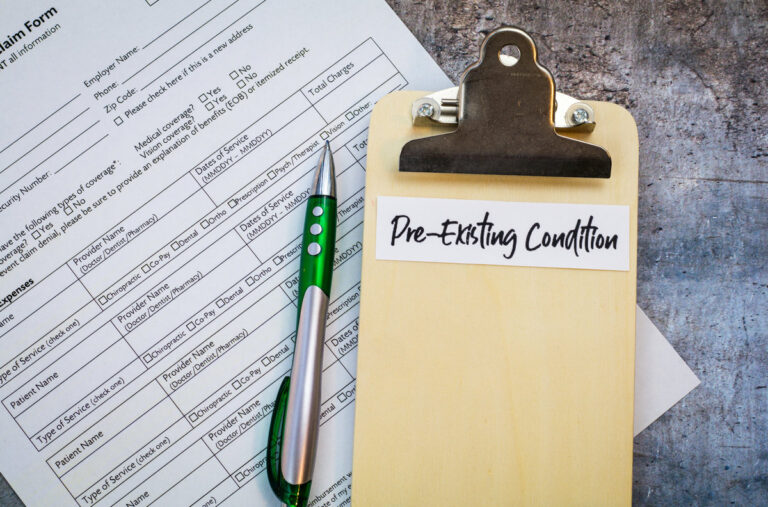After a car accident in the Badger State, Wisconsin law grants a car accident victim a specific amount of time to file a lawsuit. According to Wisconsin Statutes Section 893.54, you have three years from the accident to initiate a personal injury or property damage claim.
Missing this deadline can lead to the court dismissing your case outright.
Why Is Understanding This Legal Deadline so Crucial?
Simply put, the statute of limitations serves as your window of opportunity to take legal action. Fail to file your claim within this time frame, and you could lose your chance to seek any legal remedy for your losses, no matter how compelling your case.
This could mean no financial support for medical bills, vehicle repairs, or any other damages you sustained in the accident.
The aim of this blog is straightforward—to provide you with a clear understanding of how the statute of limitations for car accident claims operates in Wisconsin.
We’ll break down the time frame, discuss exceptions to the rule, and guide you through the steps to take before the ticking clock runs out.
After a car accident in Wisconsin, you’ll need a lawyer with a strong grasp of this important legal concept.
What Is a Statute of Limitations?
In personal injury law, a statute of limitations is akin to an hourglass counting down the time you have to file a lawsuit.
Think of it as a legal countdown that starts ticking from the moment a particular event occurs or a claim arises. Once this clock runs out, you can no longer initiate legal action related to that event.
So why do these time frames exist in the first place? The primary reason is to ensure fairness and accuracy in the legal process. As time passes, evidence may degrade, witnesses may forget details or become unavailable, and it becomes increasingly difficult to reliably establish the facts of a case.
The statute of limitations prevents these complications by encouraging people to pursue their claims promptly.
In summary, statutes of limitations serve two main purposes:
- They promote prompt action, thereby allowing for more accurate and reliable resolution of disputes.
- They provide potential defendants with the assurance that after a certain period, they will no longer face legal action for past events.
This understanding of the statute of limitations sets the stage for diving deeper into how it applies specifically to car accident claims in Wisconsin.
What is the Time Frame to File a Car Accident Claim?
The three-year limit applies to claims related to car accidents, including:
- Personal injury. If someone hurt you, you have three years to file a claim seeking damages for your injuries.
- Property damage. This covers damages to your vehicle or any other personal property.
The clock starts ticking on the date of the accident. This is commonly known as the accrual date, which we’ll discuss in more detail in a subsequent section.
Can the Statute of Limitations Be Extended or Shortened?
Specific situations may extend or shorten the three-year time limit:
- Governmental entity. If your accident involved a government-owned vehicle or a government employee, different rules apply, and you may have even less time to file a claim.
- Wrongful death. If the accident resulted in death, and the family of the victim pursues a wrongful death claim, a different statute of limitations might apply.
Given these intricate and case-specific rules, consult a legal representative familiar with Wisconsin’s laws so you make timely and appropriate legal moves.
Wisconsin’s statute of limitations balances the interests of both the plaintiff and the defendant. It allows ample time for accident victims to recover, assess their damages, and seek legal advice, while also protecting defendants from the stress and uncertainty of indefinite legal action.
The same time limits apply to other types of vehicle accidents, including bicycle accidents. Contact our Madison bicycle accident lawyer promptly to protect your rights.
What Are Exceptions to Wisconsin’s Statute of Limitations?
While the three-year time limit applies in most cases, some notable exceptions can either extend or shorten this period.
Minors
If the person involved in the car accident is a minor (under the age of 18), the statute of limitations doesn’t start until their 18th birthday. This generally gives them until they turn 21 to file a lawsuit.
This extension protects the legal rights of young individuals who cannot initiate a legal process on their own.
Mental Incapacity
Similarly, the clock on the statute of limitations won’t start on a mentally incapacitated individual until the incapacity lifts. This gives individuals the chance to take legal action once they can do so.
Leaving the State
In some cases, the defendant leaving Wisconsin can pause the statute of limitations. This means that the clock may stop ticking for as long as the defendant is out of state, resuming only when they return.
Understanding these exceptions is vital for anyone involved in a car accident in Wisconsin. They can provide more time to file a claim under certain conditions, but never rely on these exceptions without seeking legal advice.
These intricate exceptions may require a car accident lawyer’s detailed assessment of the facts and circumstances surrounding your specific case.
Navigating these rules and exceptions isn’t simple, and it underscores the importance of consulting a legal representative who is well-versed in Wisconsin’s traffic laws and statutes.
By understanding the exceptions to the rule, you can arm yourself with the nuanced knowledge you will need when figuring out your legal options after a car accident in Wisconsin.
The Countdown Starts: When Does the Clock Start Ticking?
One of the most important concepts to grasp when it comes to the statute of limitations is the accrual date or the moment when the clock starts ticking on your ability to file a claim.
In the context of car accidents in Wisconsin, the accrual date is usually the day the accident occurred. This means that your three-year window to file a lawsuit starts on this day.
What is the Discovery Rule in Wisconsin?
Typically, the triggering event for the countdown is the accident itself. However, a later date may apply, especially if your injuries did not immediately appear and you only discovered them later.
This is often referred to as the discovery rule, but it rarely applies to car accident cases in Wisconsin.
The discovery rule doesn’t let you postpone the legal deadline just because you’re still figuring out how badly you’re hurt. The discovery rule allows the statute of limitations to begin only if you did not discover the injury or disease at the time of and around the accident.
The Importance of Acting Quickly After a Car Accident
While three years may seem like a long time, it’s easy for it to slip away when you’re dealing with medical appointments, car repairs, and insurance negotiations.
Take prompt action. You’ll need time to consult a legal representative, then your lawyer will need time to collect evidence and negotiate a settlement before possibly going to court.
Understanding when the clock starts ticking on your ability to file a lawsuit preserves your legal rights. Misinterpreting this date could lead to unfortunate consequences, including losing your ability to seek legal remedies altogether.
Knowing when your statute of limitations begins ensures you’re on top of your legal obligations and opportunities, giving you the best chance at achieving a favorable outcome.
What Are the Legal Steps to Take Before the Deadline?
Even with a three-year window, take immediate and correct legal steps to ensure the success of your case. Here’s a general guideline of actions to consider:
Consult a Legal Representative
First, consult an experienced car accident attorney in Wisconsin. They can provide tailored advice based on the specific details of your case, including potential damages you may claim.
Gather Necessary Documents
Before filing, you’ll need a solid foundation of evidence. Collect medical reports, police reports, photographs, witness statements, and anything else relevant to your case.
File Initial Claims and Paperwork
With your legal representative’s guidance, initiate the necessary claims with your insurance company and possibly the other party involved in the accident. Keep track of all communications and meet any internal deadlines set by the insurance companies.
Taking these steps not only helps you build a strong case but also ensures that you’re well within the confines of the statute of limitations. It’s easier to gather fresh evidence and obtain reliable witness statements closer to the date of the accident.
Filing within the appropriate time frame also provides the opportunity for out-of-court settlements. These can often resolve more quickly and cause less stress than going through a full-blown court case.
The statute of limitations is more than just a deadline—it’s a timeframe within which you have the highest likelihood of presenting a strong, evidence-based case. Use it wisely, and you’ll position yourself better to navigate the legal complexities that come your way.
What Are the Consequences of Missing the Statute of Limitations?
The statute of limitations isn’t just a recommendation, it’s a hard-and-fast rule with significant implications. Here’s what you could look at if you miss the window.
Case Dismissal
Perhaps the most direct consequence is that the court will dismiss your case if you attempt to file it after the statute of limitations expires. No matter how strong your case is or how severe your injuries are, the court usually has no discretion to hear a case that you file late.
Loss of Leverage in Negotiations
Even if you’re in negotiations with an insurance company or the other party involved, missing the statute of limitations deadline can severely weaken your position. Knowing that you no longer have the option to take the case to court, the other party has little incentive to offer a fair settlement.
Emotional and Financial Strain
Missing the deadline can cause emotional stress, especially when you spent time gathering evidence and preparing for a lawsuit. Furthermore, you would have to bear the financial brunt of your medical bills and car repairs without the prospect of legal recourse.
Understanding these consequences underscores the importance of acting promptly and within the legal timelines set by Wisconsin law.
Failing to adhere to the statute of limitations will eliminate your ability to seek legal remedies, closing the door on financial recovery for any damages suffered.
Time Is of the Essence
By understanding the statute of limitations for car accident claims in Wisconsin, you position yourself for the best possible outcome in an inherently stressful situation.
Contact a Car Accident Attorney in Wisconsin

If you or someone you know was in a car accident in Wisconsin, understanding the statute of limitations is only one piece of the legal puzzle.
Navigating through the complex web of state laws, insurance policies, and legal proceedings requires guidance from a skilled legal representative.
An attorney with a background in Wisconsin car accident claims can explain your options, advise you on the best course of action, and guide you through each step of the legal process. More importantly, they can file your case within the statutory deadline, ensuring that you don’t miss out on your opportunity for legal redress.
Each car accident case is unique, and laws can change. Consulting a qualified Wisconsin car accident lawyer at Pemberton Personal Injury Law Firm is the best way to ensure you’re well-informed and well-prepared for whatever legal challenges come your way.
Act swiftly to secure your legal rights and improve your chances of achieving a favorable outcome. Call a skilled personal injury lawyer for help with your claim today.





